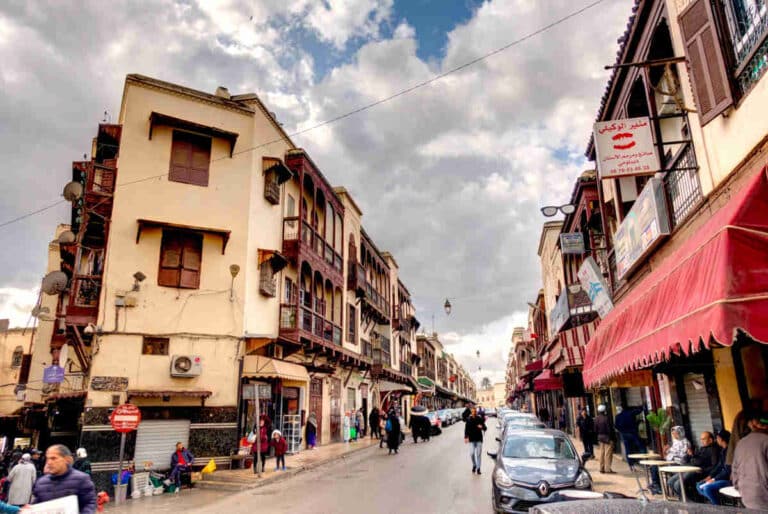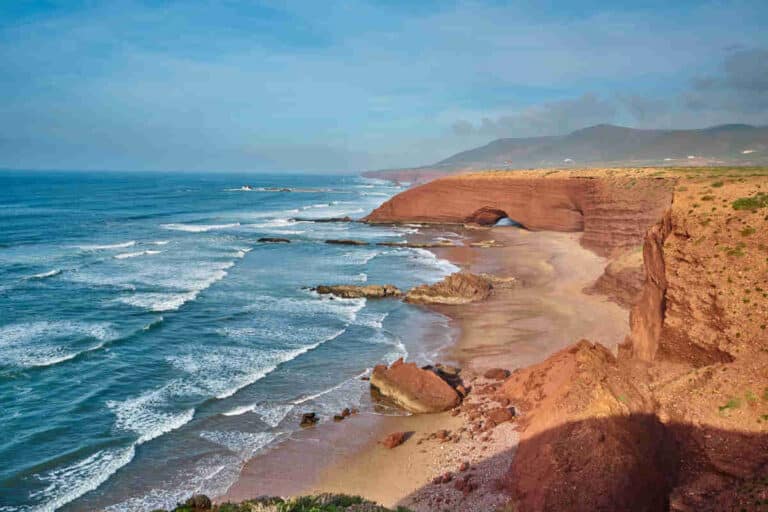In this blog we like to find the meeting points between Morocco and other countries, which materialize in the form of tracks to know during the trip. We have talked about the American footprintsthe Portuguese Portuguese and the Spanish. But with regard to the relationship with Spain, the parallels between Morocco and Andalusia are striking, with commonalities that often go unnoticed even the most intrepid travelers. In this post we give context to this phenomenon.
Morocco and Andalusia: why such a close relationship?
That Morocco and Andalusia have many things in common is due to several reasons. Of course, of proximityAndalusia is the Spanish region that covers the entire southern peninsular, the one located on the other side of the Strait of Gibraltar. In fact, the distance that separates the two countries and continents is only a short distance. 14 kilometers between Tangier and Tarifa.
In addition to this proximity (and largely because of it), both territories share a common history: under the name Al-Andalus is known to a civilization of Arab-Muslim government and population, with an important presence of Christians of Hispano-Roman origin and Sephardic Jews. In one way or another, it was a reality from 711 to 1492, through different political entities.
Some of them were authentic empires whose matrix was mainly in Morocco, such as the Almoravid and Almohadwith its capital in Marrakech. At other times, the epicenter of power was located in the Iberian Peninsula, such as the Umayyad Caliphate of Córdoba, establishing vassal relations with the kingdoms located in what is now Morocco.
Finally, we must not overlook the great cultural and social influence that Andalusia exerted on Morocco during the time of the Spanish Protectorate of the 20th century (1912-1958), both due to the architecture of the new expansions and the transfer of numerous Andalusians here to occupy public office.
Al-Andalus, Andalusia, Andalusians and andalusíes and Andalusians
As you may have noticed, the name Al-Andalus is the etymological origin of the word Andalusia. (although recent studies suggest that the Arabs used this name to refer to the entire Iberian Peninsula). And given that they are different concepts, the gentilicios should not be used in an equivalent way.
When talking about andalusíwe refer to that which belonging to or relating to al-Andalus or Muslim Spain, according to the RAE Dictionary. Therefore, it is not correct to speak of andaluz for monuments or artistic expressions coming from al-Andalus, and we have to limit it only to what belongs to or relates to the autonomous community of belonging or relating to the autonomous community of Andalusia, as the DRAE also explains.as the DRAE also explains.
Andalusi, synonym of high culture
Thanks to the extraordinary cultural refinement achieved by the Andalusian society, theEspecially during the Umayyad Caliphate of Cordoba and some Taifa kingdoms, the influence of their culture was felt on the other side of the Strait of Gibraltar. An influence that was even more evident with the migratory flows that took place after Christian conquests or social tensions.
The cultural expressions where the Andalusian legacy is most evident are gardening, literature and, above all, music. literature and, above all, the music of Andalusia.. In fact, the genre of Andalusian music (or Andalusian nuba) is considered the ‘classical music’ of the country, based on an enormous rhythmic variety, a solo song (or unison choir) and typical medieval instruments, such as the lute, the zither, the rebec or the darbuka.
In addition to these cultural expressions, which in many cases require a certain degree of erudition to identify and understand, there are other artistic expressions that are easier to recognize: the monuments, which stand before the eyes of travelers for their contemplation and admiration.
And we talked about it precisely in this other post of our blog, where we review the amazing Andalusian airs of buildings in Marrakech, Fez or Rabat.




